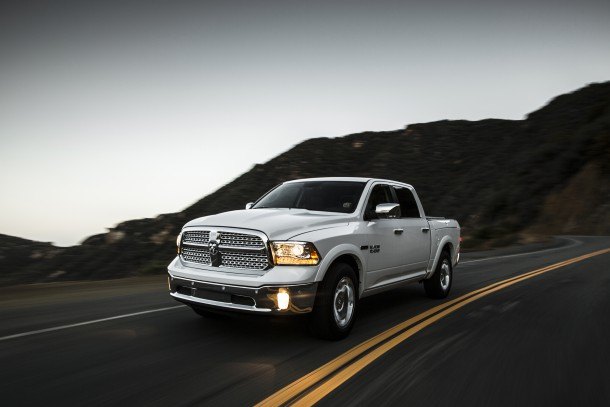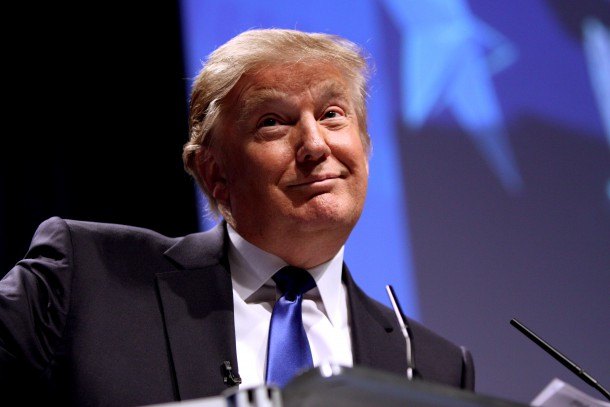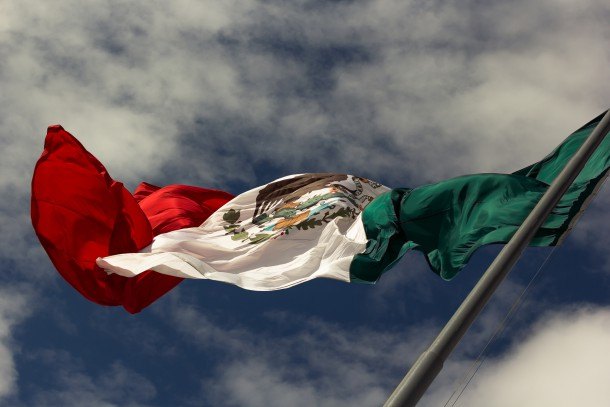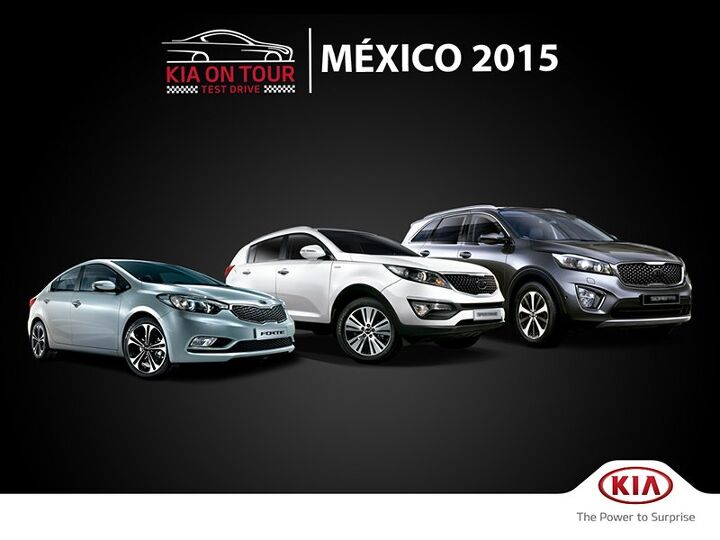#Mexico
GM's Barra Defends Not Equipping Some Global Cars With Airbags
General Motors CEO and Chairwoman Mary Barra defended Wednesday her company’s decision not to put airbags in some of its cars in international markets.
“In many of those places the technology is available and it’s a customer choice if they want it,” Barra said, according to the International Business Times. “There’s many cases where we are well above standards, but we also have to look at affordability otherwise you cut people out of even having the availability of transportation.”
Barra made the remarks in Davos, Switzerland, which was a response to a letter sent to her last year by consumer advocacy groups in the U.S. — including Consumer Reports — requesting the automaker standardize safety features in its cars worldwide.
Report: Ford Building New Auto Plant in Mexico
Ford will announce plans early this year to build a new plant in Mexico, Reuters reported Thursday. The $1.5 billion plant will produce 350,000 cars annually and could eventually produce the new Focus after production of that car leaves Ford’s Wayne, Michigan plant in 2018.
Ford didn’t comment on the report.
Reuters said Mexican officials with knowledge of the facility confirmed that the plant would be built in the state of San Luis Potosi.
TTAC News Round-up: Investors Pump the Brakes, Daimler's Dig, and Chapo's Crapwagon
Investors aren’t necessarily drinking automakers’ Kool-Aid that 2016 will be full of beer and Skittles.
That, the China-made Cadillac CT6 that’ll eventually get here, El Chapo’s cheapo getaway car and General Motors’ questions get down and dirty … after the break!
TTAC News Round-up: Ford's Self-driving Herd Gets Bigger, Takata's All Alone, VW Sends The Cavalry
It certainly sounds like Ford is close to selling a self-driving Fusion real soon.
That, Matthias Müller finally comes to the U.S. to ask “You mad, bro?” Nissan has no love for Takata, and business is hot south of the border … after the break!
Mexican Chevrolet Aveo: Zero Star Safety Rating
The Chevrolet Aveo is the most popular car in Mexico, but is also the least safe, according to consumer safety experts. Testing from Latin NCAP found that the Aveo, when sold without airbags, received zero stars for its front-passenger safety rating.
Huffington Post and The Wall Street Journal report that American safety advocates including Consumer Reports have written to General Motors CEO Mary Barra, asking why the potentially life-saving devices that are installed as standard equipment for many other countries, are expensive add-ons for Latin American countries.
(“Life-saving” assuming that Takata isn’t the supplier.)
What We Missed in the News, Post-LA Auto Show Edition
While we were hanging outside the Staples Center begging passersby for photos, information and leftover shrimp from the Los Angeles Auto Show to share with you all (well, maybe not the shrimp), there was still news happening that we didn’t get the chance to cover.
So, here it is in condensed form.
Big Three Go Long On SUV, Truck Production in North America
Detroit automakers may be betting high-profit SUVs and trucks are a better fit for their domestic plants as those automakers shift production away from cars to make room for larger, high-margin vehicles.
Ford and Fiat Chrysler Automobiles will largely shift production of their cars to Mexico and bring more trucks and SUVs to North American facilities, according to their contracts with the United Auto Workers, Automotive News reported.
The report consolidates production planning schedules included in UAW contracts with domestic automakers, which shows automakers’ plans to move some of their cars to Mexico or overseas. Of the Big Three, General Motors will sell the most domestically produced cars in North America, including the Malibu, Impala, Sonic, Bolt and Volt, although the small-car plant recently announced a slowing production schedule. Ford will still produce the Mustang and Fusion at its Flat Rock plant in Michigan.
Trans-Pacific Partnership Agreement Reached, Let's All Buy Subaru Sambars
Twelve countries, including the United States, reached an agreement Monday on an historic trade agreement that could economically tie together more than 400 million people in Asian Pacific and American countries. The pact would cover trade for wide ranging products, from rice to pharmaceutical drugs to cars.
The Trans-Pacific Partnership, which negotiators have been working on for eight years, would thaw trade relations among countries included in the regional zone, including Japan and the United States. For automakers in both countries, the tentative deal includes provisions for Japanese automakers to (eventually) bring light-duty trucks to the U.S. For American automakers, part of the proposed agreement included a side deal between America and Japan to allow access for U.S. automakers to traditionally closed Japanese markets.
The agreement faces an uphill battle to get congressional approval; House Republicans and presidential candidates already have roundly dismissed the deal.
FCA-UAW Contract Sees Trucks Coming Home, Cars Going to Mexico
Ram production will be coming back to the United States and car production moving to FCA’s Mexican operations, Automotive News is reporting citing anonymous sources.
The news comes just days after FCA and the UAW tentatively agreed to a new national contract while locals continue to hammer out the finer details at the plant level. According to the report, there will also be some movement of products within U.S. borders between FCA plants.
GM to Develop Global Car With China-based SAIC Motors
General Motors will invest $5 billion to build a global line of cars with Shanghai-based SAIC Motors that will be sold in Brazil, China and other emerging markets, the automaker announced Tuesday.
The cars won’t be sold in the United States, according to the statement.
The global vehicles will go on sale starting in 2019 and the automaker expects the line to eventually produce roughly 2 million cars annually.
Republican Hopeful Donald Trump Threatens Ford With Tariffs Over Mexico
Republican presidential hopeful and billionaire Donald Trump wants to bring the pain via punitive tariffs to Ford for manufacturing vehicles in Mexico.
Mexico, Southeastern US Besting Canada, Detroit In Auto Manufacturing
Despite being unified on the trading front, Mexico and the Southeastern United States are besting Canada and Detroit in the automotive industry game.
Kia Officially Launches Brand In Mexico, Sales Beginning In July
Kia officially announced Wednesday it is launching the brand in Mexico, with sales to begin July 1 of this year.
Hyundai To Build Mexican Factory After Sales Exceed 50K Per Year
Hyundai is planning on building a factory in Mexico, but only after annual domestic sales in the country rise to appropriate levels.
Ford To Announce $2.5B Investment In Mexico On 90th Anniversary
This Friday, Ford will announce a $2.5-billion investment plan for two of its factories in Mexico.

























Recent Comments